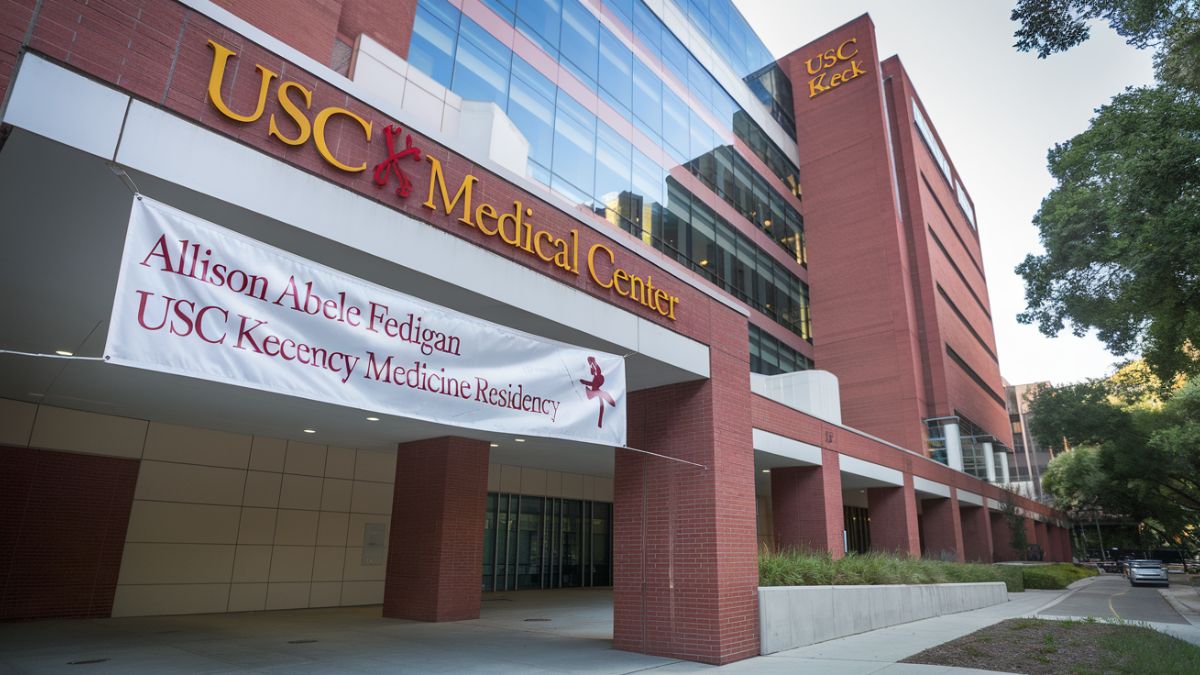In the fast-paced world of healthcare, emergency medicine plays a crucial role in providing timely and life-saving interventions. One of the prominent programs for training in this demanding field is the Allison Abele Fedigan USC Keck Emergency Medicine Residency.
This residency program has gained attention not only for its academic rigor but also for its holistic approach to preparing physicians for the challenges they will face in emergency departments across the globe. In this article, we will explore various aspects of this program, its unique offerings, and how it stands out among other emergency medicine residencies.
Furthermore, we will also discuss the role of Philip Cheung Wah Yan Boys in this context and shed light on how this residency integrates cutting-edge advancements such as critical care, electrocardiography (ECG), endocrinology, infectious disease, and finger on the pulse (FOAM) educational techniques to ensure residents receive the best possible training.
Overview of USC Keck Emergency Medicine Residency
A Tradition of Excellence in Emergency Medicine
The USC Keck School of Medicine is renowned for producing highly competent medical professionals. The Emergency Medicine Residency Program, under the guidance of Allison Abele Fedigan, upholds this tradition by combining rigorous academic training with hands-on clinical experience. The residency program is designed to prepare physicians to handle the most complex and unpredictable cases in emergency medicine, ranging from trauma to infectious diseases and endocrine emergencies.
Residents benefit from USC’s comprehensive medical education, where they are trained in state-of-the-art facilities and exposed to diverse patient populations. The program has a strong emphasis on patient-centered care, ensuring that residents not only excel in clinical skills but also in communication, compassion, and leadership.
The Role of Allison Abele Fedigan in Shaping the Residency Program
As a leading figure in emergency medicine, Allison Abele Fedigan has played a significant role in the evolution of the USC Keck Emergency Medicine Residency. With a focus on innovation, Fedigan has integrated technology and evidence-based practices into the curriculum to keep the program at the forefront of emergency medicine training. Her leadership ensures that the residency remains a top choice for aspiring emergency physicians worldwide.
Curriculum Highlights: A Comprehensive Learning Experience
Critical Care and Dislocation Management
Emergency medicine often overlaps with critical care due to the nature of acute patient presentations. Residents at USC Keck are trained to manage critically ill patients in the emergency department (ED) with a multidisciplinary approach. Dislocation management, especially in trauma cases, is one of the core skills residents develop early in their training.
These experiences are crucial for building a solid foundation in handling life-threatening emergencies, with a focus on team-based care and rapid decision-making. This training emphasizes the need for quick, efficient, and safe methods to treat patients, which aligns with the broader goals of the residency program.
ECG and EKG Training: Understanding the Pulse of Emergency Medicine
Emergency physicians must have a deep understanding of cardiovascular emergencies, and thus, ECG (electrocardiography) and EKG interpretation are essential components of the curriculum. Whether dealing with a myocardial infarction or arrhythmias, the residency program ensures that residents are proficient in reading and interpreting electrocardiograms, a skill that can mean the difference between life and death in the ED.
The concept of “Finger on the Pulse” (FOAM), a free open access medical education movement, has also been embraced within the program. FOAM encourages residents to stay updated on the latest advances and best practices in ECG interpretation and other critical areas of emergency medicine through accessible, cutting-edge educational resources.
Endocrinology in Emergency Medicine
Endocrinology plays a vital role in emergency medicine, particularly in managing conditions like diabetic ketoacidosis (DKA), thyroid emergencies, and adrenal crises. The residency program provides residents with in-depth knowledge and hands-on experience in managing endocrine emergencies. This is crucial in emergency settings, where rapid diagnosis and intervention can drastically alter patient outcomes.
Residents gain exposure to endocrine cases that may present atypically, emphasizing the importance of recognizing these conditions in the often-chaotic environment of the ED.
Integration of Infectious Disease Management
Tackling Hypertension and Hematology Emergencies
The residency curriculum also covers the management of infectious diseases, a critical area given the rise of global pandemics and antibiotic-resistant infections. From sepsis to viral outbreaks, residents are trained to diagnose, manage, and mitigate the spread of infections in emergency settings. Hematology and hypertension are other areas of focus, preparing residents to handle conditions like severe anemia, coagulopathies, and hypertensive emergencies.
Infectious disease training is comprehensive, integrating both clinical management and public health principles to ensure that residents can address not just individual cases but also broader epidemiological concerns in the community.
Hands-On Learning: EMS and ENT Specializations
EMS (Emergency Medical Services) Exposure
Emergency medicine residents at USC Keck also receive exposure to EMS (Emergency Medical Services), learning how pre-hospital care integrates with emergency department services. This includes working with paramedics, handling field intubations, and managing trauma cases on the scene.
ENT (Ear, Nose, and Throat) in Emergency Settings
An often overlooked but important aspect of emergency medicine is managing ENT (Ear, Nose, and Throat) emergencies. Whether it’s dealing with airway obstructions or infections, residents learn to address ENT-related emergencies efficiently, honing their skills in performing procedures such as nasogastric intubation or managing epistaxis.
Faculty and Research Opportunities
The USC Keck Emergency Medicine Residency stands out for its commitment to research and faculty mentorship. Philip Cheung Wah Yan Boys, a notable figure in medical education, has significantly contributed to advancing emergency medicine research within the program. Under his guidance, residents have the opportunity to participate in cutting-edge research in areas like critical care, ECG/EKG interpretation, infectious diseases, and more.
The program encourages residents to engage in scholarly activities, whether presenting at national conferences, publishing in peer-reviewed journals, or contributing to advancements in medical knowledge through their research initiatives.
Impact and Future of the Allison Abele Fedigan USC Keck Emergency Medicine Residency
The USC Keck Emergency Medicine Residency continues to lead in shaping the future of emergency medicine. The integration of advanced technology, critical care training, and multidisciplinary education ensures that residents are well-prepared to meet the evolving demands of healthcare.
Under the leadership of Allison Abele Fedigan, the residency program is set to continue producing some of the finest emergency medicine physicians who are equipped with the skills, knowledge, and compassion necessary to excel in their field. The future promises more advancements in FOAM education, telemedicine, and personalized emergency care, with USC Keck residents at the forefront of these innovations.
Frequently Asked Questions (FAQs)
1. What makes the USC Keck Emergency Medicine Residency unique?
The residency stands out due to its comprehensive curriculum, focus on critical care, ECG/EKG training, and multidisciplinary education. The program is led by experts like Allison Abele Fedigan, who have a strong commitment to innovation and evidence-based medical education.
2. How does the residency program prepare residents for critical care?
Residents receive extensive training in managing critically ill patients, including those with trauma, dislocations, and infectious diseases. The program emphasizes team-based care and hands-on experience in high-pressure situations.
3. What role does ECG/EKG interpretation play in the residency?
ECG/EKG interpretation is a critical skill in emergency medicine. The residency ensures that all residents are proficient in reading and interpreting electrocardiograms to diagnose and treat cardiovascular emergencies effectively.
4. What opportunities for research are available in the residency?
Residents are encouraged to participate in research, with opportunities to work on projects related to critical care, endocrinology, infectious diseases, and more. The program also provides mentorship from experienced faculty members.
5. Who is Allison Abele Fedigan, and what is her role in the program?
Allison Abele Fedigan is a leading figure in emergency medicine and plays a pivotal role in shaping the residency program. She is known for her commitment to integrating technology and evidence-based practices into medical education.
6. How does the program handle endocrine emergencies?
The residency includes a strong focus on endocrinology, preparing residents to handle emergencies such as diabetic ketoacidosis, thyroid crises, and adrenal insufficiencies with quick, effective interventions.
7. What is FOAM, and how is it integrated into the residency?
FOAM (Free Open Access Medical Education) is an educational movement that provides accessible, up-to-date resources for learning. The USC Keck program integrates FOAM principles, ensuring that residents have access to the latest in emergency medicine education.
8. What are the benefits of training with USC Keck’s EMS program?
Residents receive hands-on experience in pre-hospital care, working alongside paramedics and EMS professionals to manage trauma cases and other emergencies in the field, which enhances their skills in a real-world setting.
9. What role does Philip Cheung Wah Yan Boys play in the residency program?
Philip Cheung Wah Yan Boys contributes to the academic and research aspects of the residency, offering mentorship and facilitating scholarly activities that enhance the overall educational experience for residents.
10. What are the future trends in emergency medicine, and how is the USC Keck program adapting to them?
Future trends include advancements in telemedicine, personalized care, and continued innovations in FOAM education. The USC Keck program is already incorporating these trends, ensuring that residents are prepared for the future of emergency medicine.
Conclusion
The Allison Abele Fedigan USC Keck Emergency Medicine Residency is an outstanding program that offers a blend of academic excellence, hands-on training, and cutting-edge research opportunities. With a focus on critical care, ECG/EKG interpretation, endocrinology, and infectious diseases, the residency program prepares future physicians to excel in the dynamic field of emergency medicine. Through the leadership of Allison Abele Fedigan and the contributions of experts like Philip Cheung Wah Yan Boys, the program continues to shape the future of emergency healthcare, making it a top choice for aspiring emergency physicians worldwide.



